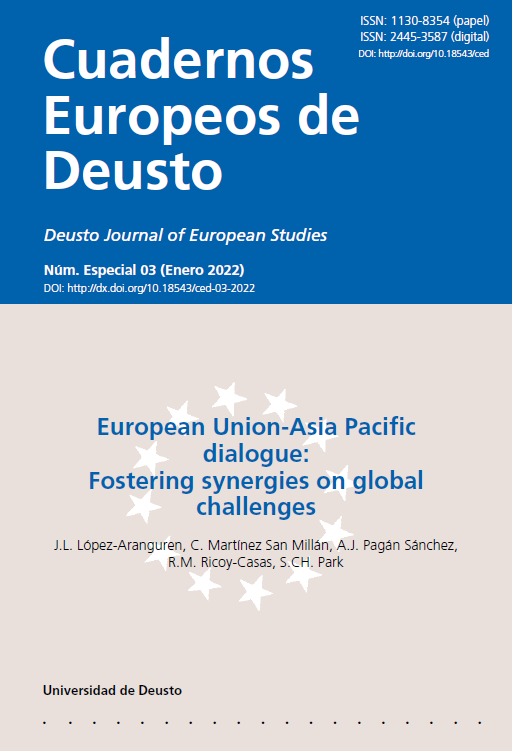The rise of China and the US-Europe alliance drift in the 2010s: A lost decade for the European Union?
Abstract
The United States and its allies within the European Union have been unable to forge a common response to deal with the rise of China. Even though China’s growing global presence might undermine the international position of the United States, Washington’s European allies have sometimes refused to close ranks with their American ally. And more importantly, European engagement with China during the last decade has lacked internal consistency and cohesion, to the point that the European Union has rarely been the relevant actor when it comes to shaping Europe-China relations. This is the conclusion reached by this paper after analyzing the EU’s behavior on the Asian Infrastructure Investment Bank, the Belt and Road Initiative, the adoption of Huawei’s 5G technology and the consideration of China as a threat within NATO’s framework. The European Commission has been unwilling or unable to unite the member states around a common position on these four cases. However, the findings of this article also support the idea that an embryonic model of strategic autonomy was already underway during the last decade, and that the growing awareness within the EU about the importance and implications of China’s rise brings new geopolitical opportunities for the union.
Received: 28 July 2021
Accepted: 05 November 2021
Downloads
The author grants to the Publisher the distribution, public communication, and reproduction rights of her/his work subject of publication in Deusto Journal of European Studies (DJES), whichever the media may be, including the permission to include it in the databases where this Journal is indexed and in the institutional repository of the Universidad de Deusto.
Upon its publication, the content of any Issue of Deusto Journal of European Studies (DJES) can be accessed, read, downloaded, copies, and distributed freely for non-commercial purposes and in accordance with any applicable copyright legislation.
The content of Deusto Journal of European Studies (DJES) can be subsequently published in other media or journals, as long as the author clearly indicates in the first footnote that the work was published in Deusto Journal of European Studies (DJES) for the first time, indicating the Issue number, year, pages, and DOI (if applicable). Any other use of its content in any medium or format, now known or developed in the future, requires prior written permission of the copyright holder.
The content of the work published in Deusto Journal of European Studies (DJES) is each author's sole responsibility. The authors assume the responsibility of obtaining all the necessary licenses for the reproduction in their manuscripts of any text, material or illustration coming from another author, institution or publication. The liabilities that may arise from complaints for publishing plagiarised articles are the sole responsibility of the author.


3.jpg)
2.jpg)
2.jpg)
2.jpg)
2.jpg)
2.jpg)







